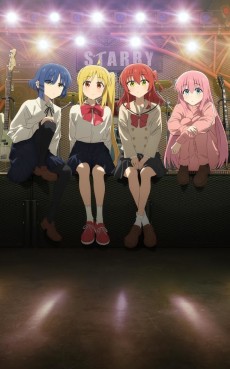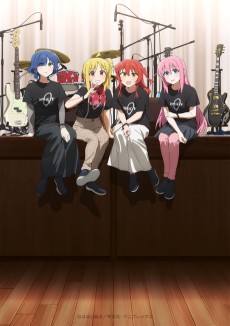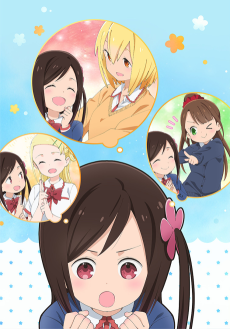BOCCHI THE ROCK!
STATUS
COMPLETE
EPISODES
12
RELEASE
December 25, 2022
LENGTH
24 min
DESCRIPTION
Hitori Gotou, “Bocchi-chan,” is a girl who’s so introverted and shy around people that she’d always start her conversations with “Ah...”
During her middle school years, she started playing the guitar, wanting to join a band because she thought it could be an opportunity for even someone shy like her to also shine. But because she had no friends, she ended up practicing guitar for six hours every day all by herself. After becoming a skilled guitar player, she uploaded videos of herself playing the guitar to the internet under the name “Guitar Hero” and fantasized about performing at her school’s cultural festival concert. But not only could she not find any bandmates, before she knew it, she was in high school and still wasn’t able to make a single friend!
She was really close to becoming a shut-in, but one day, Nijika Ijichi, the drummer in Kessoku Band, reached out to her. And because of that, her everyday life started to change little by little...
(Source: Crunchyroll)
CAST

Hitori Gotou
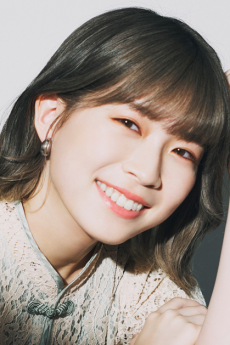
Yoshino Aoyama
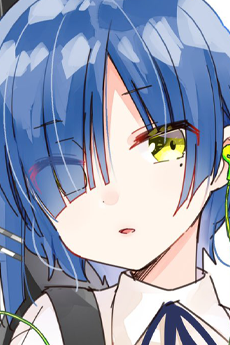
Ryou Yamada
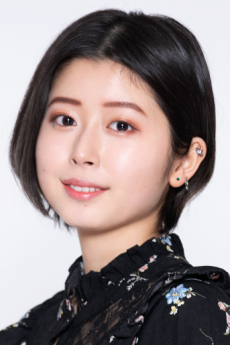
Saku Mizuno

Nijika Ijichi

Sayumi Suzushiro
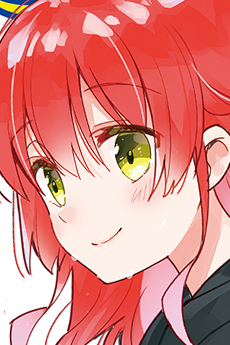
Ikuyo Kita

Ikumi Hasegawa

Kikuri Hiroi

Sayaka Senbongi
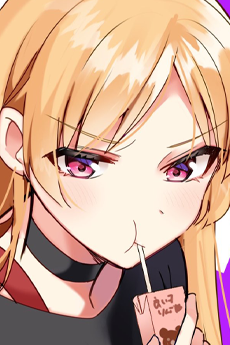
Seika Ijichi
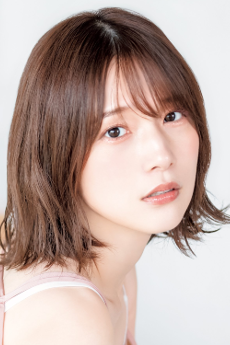
Maaya Uchida

PA-san
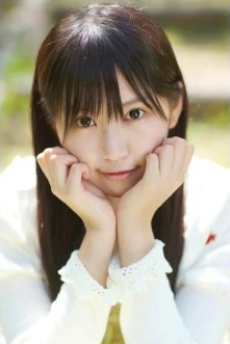
Kotori Koiwai

Jimihen

Kotori Koiwai

Futari Gotou
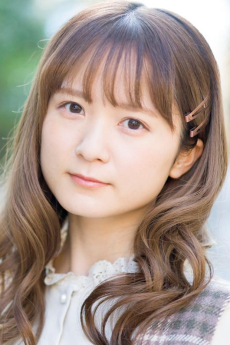
Misaki Watada
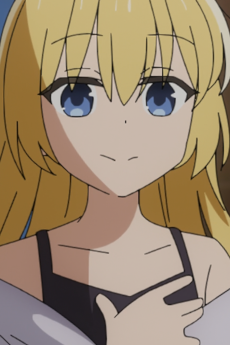
Eliza Shimizu
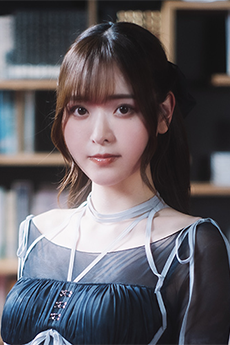
Sally Amaki

Michiyo Gotou
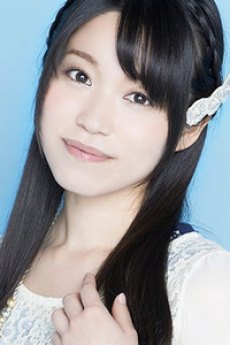
Rie Suegara
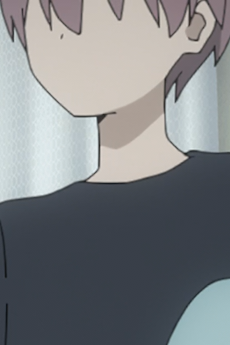
Naoki Gotou
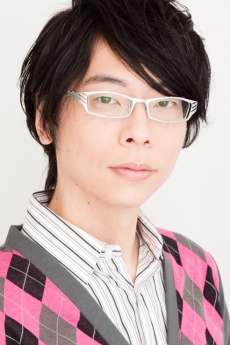
Junji Majima
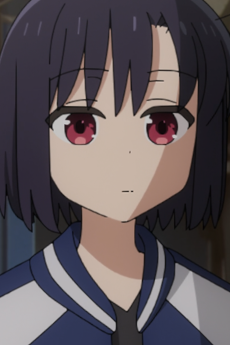
Shima Iwashita
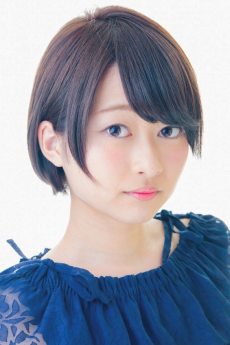
Maki Kawase
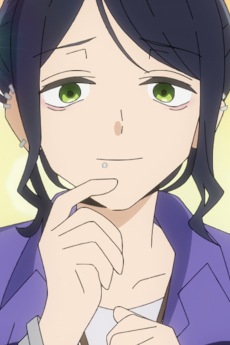
Ginjirou Yoshida

Katsuyuki Miura

Hitori no Fan 1-gou

Kana Ichinose
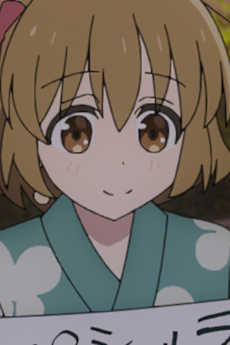
Hitori no Fan 2-gou
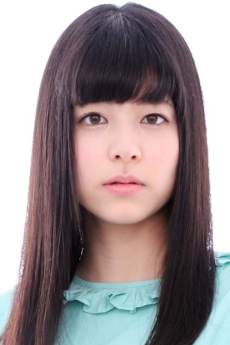
Miyuri Shimabukuro
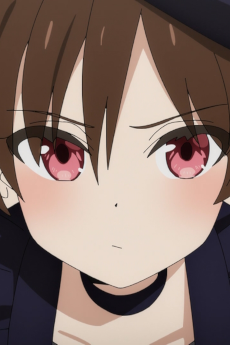
Yoyoko Ootsuki
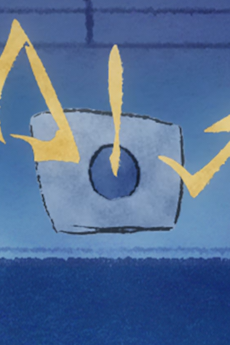
Death Metal Voice
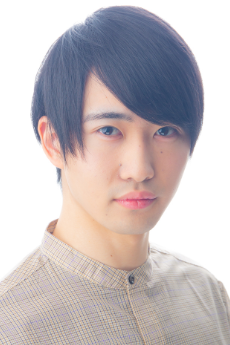
Kouseki Kogure
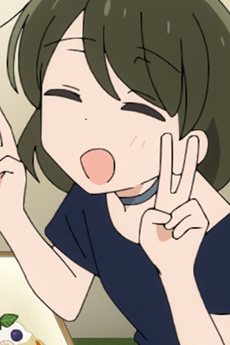
Kita no Yuujin
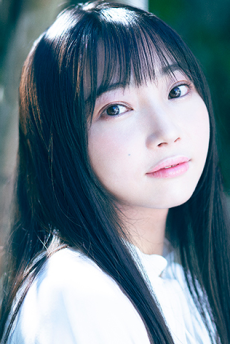
Hinaki Yano
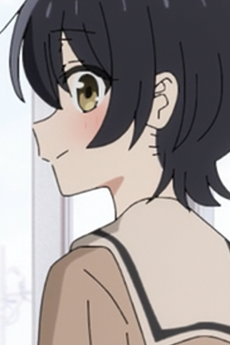
Kita no Yuujin

Yume Miyamoto
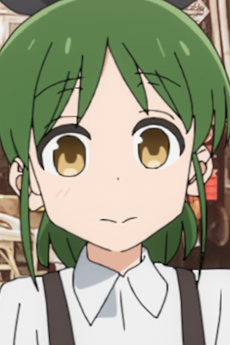
Gakki-ten no Tenchou

Konomi Kohara
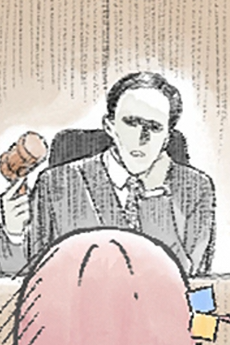
Saibankan
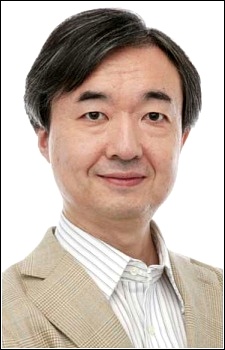
Yasunori Masutani
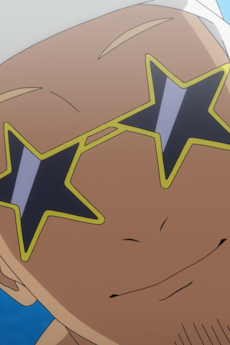
Umi no Ie no Tenin
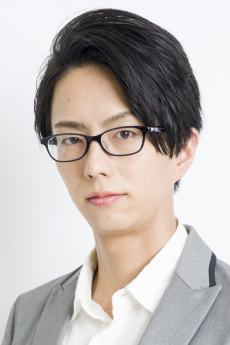
Atsushi Kousaka
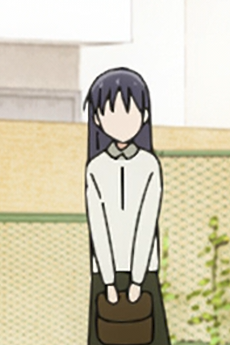
Salaryman no Tsuma

Emiko Takeuchi
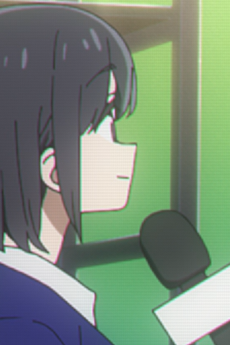
Interviewer
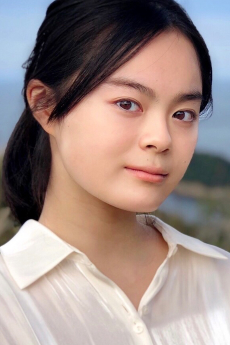
Anna Nagase
EPISODES
Dubbed
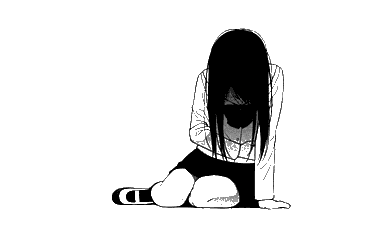
Not available on crunchyroll
RELATED TO BOCCHI THE ROCK!
REVIEWS

LordSozin
80/100A show that’s full of brilliance, passion, heart, and creativity from the director and the creator of this phenomenon.Continue on AniListI think at the core of Bocchi the Rock! is the many instances of growth, lessons, and emotional maturation of Hitori, or Bocchi as she goes by in the show, that she undergoes is what made this show work. In all of its light-hearted comedic moments and spectacular visual usage in its presentation, it is all done so in the cause of facilitating the human characterizations of Bocchi to the viewers with relatability and charisma. Without this core theme as the pillar of the entire show, I don’t think it would’ve worked as effectively as it did.
The simple story of Bocchi the Rock! quickly unravels as we learn that Bocchi has had social anxiety for as long as she knew her existence. As it’s shown at the very beginning of the series, Bocchi spent all of her middle school struggling to make friendships, share hobbies, and do what her heart desires. Her anxiety stems from her uncanny disorder of being unable to speak and project confidently in front of people. When in face of one-on-one conversations, it’s shown in her body language as she often darts her eyes left and right, cowers her body as to run or away, and speaks in stuttered ways under the spotlight. The attention to portraying an introvert with social anxiety in this obvious yet subtle way is what makes the show work.
Additionally, the show takes steps to make a distinction between an introvert with social anxiety and a frequent normal introvert. This element of contrast is plainly shown between Ryou Yamada and Bocchi. Ryou, one of the four members of the Kessoku band and one of the main leads of the show, likes being alone as opposed to Bocchi, who desperately seeks connections and friendships despite her social endeavors. Ryou is very much different from Bocchi. Despite that both of them can be categorized as introverts, it’s the ways of their behavior and conduct that separate them. Such as in ways while Bocchi struggles under the spotlight and in social situations, Ryou is absolutely indifferent to social interactions; she speaks when she wants to and when she likes to without any of the traits that Bocchi has. I admit that even though this part of the presentation is not prominent in the show, it’s subtle enough for me to appreciate it and it’s an add-on that makes the show work.
Outside of its characters, the director of Bocchi the Rock! often uses clever and profound visual imagery to convey Bocchi’s inner workings of the mind. Many moments where I found myself surprisingly chuckling or laughing out loud arose from those scenes. Be it the display of pouring water from a pipeline in a non-animation format or an actual sketch drawing animation sequence that was meant to represent the chaotic space of Bocchi’s mind when she goes under social panic attacks; nonetheless, I found this style of directing to be really fun to watch and it serves its purpose to the characters and by extension, the show. Thus, making it really reminiscent of something such as The Tatami Galaxy and the like. While I haven’t read its source material, I have no doubt that this anime adaptation has significantly enhanced the manga that an animation form can and truly produce in extravagant ways.
As I aforementioned at the beginning of this writing, the core of Bocchi the Rock! is the journey of growth, lessons, and emotional maturity in Bocchi throughout the show. In the many instances since Bocchi’s decision to join a band as she has always dreamed of, the show takes notable moments to present the momentous occasions in which she’s in the process of changing and growing. And the scenes comprised of those moments are always dealt with heart and passion from the director, animators, and storyboarders. This is evident in the way how this project is presented in every episode. Every scene of every episode in this show goes the extra mile and a half more than the previous ones and its efforts certainly stand out among the masses. In turn, for the viewers, making it really endearing to watch. At the same time, it’s not easy for Bocchi. This is why we see Bocchi often reverting back to her old self—crumbling under social situations, panicking and overthinking, or stuttering all the same. But the change is still there and we, the viewers, can see it. The same can be said for the rest of the band as well. For all of its members: Ryou, Nijika, and Ikuyo get their moment of reflection as a collective. Which in turn, cultivates their bond as a group, a band, and friends, leading to some of the best and my favorite moments and performances in the show. This is all due to the fact that it’s presented in entertaining ways as well as with heart and passion that’s communicated to the audience.
Bocchi the Rock! is one of those shows that permeate happiness, adrenaline, and excitement, as well as meaningful heartfelt moments in every single episode of its run. The usage of its visuals as a storytelling tool is beyond the limitations and confinements of the usual animation form as it’s utilized in an uncanny fashion that’s filled with flair and mastery directing to produce results. Combined with the absolute devotion and enthusiasm from the staff, their passion and love for the series constantly seep through the show. And that’s what makes Bocchi the Rock! work. It’s more than just your run-of-the-mill Cute Girls Doing Cute Things type of show as some quickly label it as. What makes Bocchi the Rock! a such delightful watch in its entirety is that the show goes beyond its initial genre impression and shall be held above all of its comparisons and the shows alike.

Sirion
100/100Bocchi The Rock, Symbol Of Passion And Peak Of CreativityContinue on AniListBOCCHI THE ROCK, SYMBOL OF PASSION AND PEAK OF CREATIVITY </center>A full season like few before, featuring a large number of top titles like Mob Psycho, My Hero Academia, Chainsaw Man, Bleach and more. Yet in the midst of this mass of shonen, to take (personally) the throne of the season and probably of the year was a musical comedy of girls playing in a band. Bocchi the Rock started out going unnoticed but managed to deservedly conquer its space with a story and a production of very fine workmanship. One could talk for hours about the qualities of this series so I'll try not to be too verbose. But first of all…<center> </center><img width='1000' src='https://i.imgur.com/OURvaYy.png'><center> _____ </center>__PLOT__<center> </center>Bocchi the Rock tells the stories of Hitori Gotou, a young girl in her first year of high school who has been battling her social anxiety disorder for years. Hitori discovers that she can become popular with music and she takes up the guitar, becoming a talented musician. Nijika Ijichi bumps into her in a park, begging her to join her band. From here Hitori (who will be nicknamed Bocchi due to her introverted nature) will begin a growth path to overcome her social anxiety.<center> </center><video muted loop autoplay controls><source src='https://i.imgur.com/3MetraT.mp4' type='video/webm'>Your browser does not support the video tag.</video><center> </center>Bocchi the Rock proves to be an anime particularly focused on comedy; many scenes are in fact centered on a comic representation of Bocchi's anxiety. However, this does not prevent the show from becoming serious and coherent in the appropriate moments. The first quality of this series is in fact the extraordinary ability to alternate comic scenes, serious scenes, important character developments and musical performances very well. Specifically, the development of Bocchi is one of the many strengths; her growth is realistic, perfectly paced so as not to be rushed or static and has allowed so many viewers to relate to her. Hitori embodies (with due comedic proportions) a very relatable social situation, especially for me and this has allowed me to become very attached to her personality. Apart from the serious side, Bocchi the Rock has certainly managed to increase its popularity due to its incredible quality comedy. The way in which the series manages the funny moments is very impactful, amusing but above all the laughs that flow from its jokes are due in large part to the monstrous technical quality and directorial creativity with which the same gags are shown (but I prefer talk about it in the section reserved for animations).<center> </center><video muted loop autoplay controls><source src='https://i.imgur.com/C6HiP4L.mp4' type='video/webm'>Your browser does not support the video tag.</video><center> ________ </center>__CHARACTERS__<center> </center>The cast certainly represents one of the most solid aspects of the show. Bocchi turns out to be a funny, likeable but above all superbly realistic character. Although her situation is greatly exaggerated for a comic matter, this does not prevent the viewer from seeing himself very much in her and in her difficulties. To support Bocchi are above all her 3 bandmates: -Nijika Ijichi (Leader and drummer): Nijika, also commonly called MVP, is the leader of the Kessoku Band and the musical and character guide of the group. She is a very sunny girl, responsible but above all of great support for all the members. In addition to fighting to make her dreams come true, Nijika never disdains to help Bocchi overcome her problems by putting her in front of ever more difficult challenges to help her grow. She is also credited with bringing the passion for music back into Ryo's life and continuously supporting Kita in her progress as a guitarist. Nijika is a girl who is surprisingly easy to get attached to because of her positivity and selflessness. -Ryo Yamada (bassist): Ryo is definitely the most peculiar and detached member of the group. She too, like Hitori, is a loner but, unlike the protagonist, she is loner by choice. Ryo is a lazy person, not used to talking to others, except when she has to get some money. At the same time, however, she appears to be a person of great principles, especially as regards music, and an excellent senpai for Bocchi who leans on her to be able to give the maximum possible contribution to the band. Ryo's apathy makes her a very easy and fun character to play comedy with. -Kita Ikuyo (singer and guitarist): Kita is the merriest and most sociable member. She never fails to engage the entire group and keeps it cohesive with her friendliness. Kita, in addition to being Bocchi's pupil as regards the guitar, provides Bocchi herself with considerable moral support to help her socialize and not be seized by fear when she is in the presence of many people. Hidden by her aura of love and hope, Kita is actually a musically insecure person and Nijika never fails to give her input. She also has a crush on Ryo after hearing her busking.<center> </center><img width='1000' src='https://i.imgur.com/PMkP3RA.png'><center> </center>A note of merit should also be given to Kikuri, a drunken bass player and Bocchi's mentor, very eccentric and unconventional but when she enters serious mode she manages to make a great contribution to Bocchi as regards her ability to play in front of many people. The maximum value that this series assumes from the point of view of the characters is the great ability to manage their interactions. Each member of the group is equally important both musically and narratively. Their characterization is perfect and this allows for a cast of realistic, human and indispensable characters within the work. All the girls give the impression of having a life of their own and do not fall into one of the most classic (non-serious) "errors" of the genre: being dependent on the protagonist, living only for the protagonist as if one did not have a life beyond that person.<center> </center><img width='1000' src='https://i.imgur.com/7r5MiUS.png'><center> _________________ </center>__ART/ANIMATION__<center> </center>Passion and creativity are the key words to define the perfect job done by the CloverWorks staff. The series relies first of all on beautiful character designs and use of colors, which reveal all the cuteness and sympathy of the characters. The entire show is a feast for the eye with smooth animation and superb character acting. The latter helps to increase the expressiveness of the characters and it's an aspect that is far too underestimated. I think that excelling in this field is now more important than ever, all anime desperately needs this element.<center> </center><video muted loop autoplay controls><source src='https://i.imgur.com/j0IjSt3.mp4' type='video/webm'>Your browser does not support the video tag.</video><center> </center>In this other clip the character acting shows (even if there were no voices) that it is possible to represent the difference between the personalities of Bocchi and Nijika in this way. Nijika walks upright, moves confidently, and stretches her arms to show things. On the other hand, Bocchi walks with her back hunched over, her arms close to his body in a defensive position and she trembles.<center> </center><video muted loop autoplay controls><source src='https://i.imgur.com/i5D2Rnp.mp4' type='video/webm'>Your browser does not support the video tag.</video><center> </center>However, the thing that is absolutely the excellence of Bocchi the Rock is its direction. The creativity of this anime is born in this element. Any comic scene is elevated to the nth degree by the infinity of ideas that are put into play to represent those gags: the LSD scenes, the use of clay animation, real videos and photos, the 3D animations, the many style changes. A crazy anime in which the simple touch of Nijika on Bocchi's forehead triggers a tear-jerking scene with very sad music in which Bocchi turns into ash that poisons and causes depression to those who breathe it, or Bocchi's fear of the sports festival represented in 4:3 with a completely different style in which the protagonist is condemned to the stake for not having contributed to the festival.<center> </center><img width='300' src='https://i.imgur.com/ISNsLWl.png'> <img width='300' src='https://i.imgur.com/TkhrUE5.png'> <img width='300' src='https://i.imgur.com/Pzpk6HN.png'> <img width='300' src='https://i.imgur.com/T80rMrT.png'><center> </center>The technical side also enhances all musical scenes. The end result is a series of hilarious and always innovative jokes, the anime never gets boring for all the episodes, any slice-of-life scene is very colorful and transmits positivity, any serious moment is improved by the characters' expressiveness. Bocchi the Rock is a technical masterpiece and in an anime that depends so much on this element, this translates into an emotional masterpiece for many different reactions, laughter, reflections, relaxation, etc.<center> </center><video muted loop autoplay controls><source src='https://i.imgur.com/OcLoNz9.mp4' type='video/webm'>Your browser does not support the video tag.</video><center> ___________________ </center>__MUSIC__<center> </center>The musical aspect of the anime is obviously another flawless element. I don't want to limit myself to judge the band's songs individually (all bangers) but I would like to focus on 2 elements in particular. The first is the use of inserts in comedy scenes, just to add an element that only improves the gags. The insert song during the LSD scenes and the one when Bocchi turns into ashes are the most striking example of this element. The second is the incredible technique and study it takes to pull off a wrong performance like the one in episode 8. The song is flagrantly wrong even to the untrained ear, especially in Nijika's rhythm and Kita's intonation. However, this doesn't seem forced into an unlistenable song as if the whole group has suddenly forgotten how to play, but it actually seems like a situation due to stress and inexperience. I think this is an effect that can be achieved with great difficulty so I wanted to emphasize this too.<center> </center><img width='300' src='https://i.imgur.com/bdsOXEA.png'> <img width='300' src='https://i.imgur.com/YzX7V3v.png'><center> _______________ </center>__CONCLUSION__<center> </center>Bocchi arrived under the radar in a jam-packed season at the end of the year, it started out to be a slice-of-life like many others but all the passion and creativity of the people who worked on it have deservedly allowed it to carve out the place that it belongs. I really feel like recommending this series to anyone but especially to those who, like me, are always interested in seeing innovative, original anime that know how to detach themselves from the enormous amount of photocopied anime thanks to a well-studied project but above all managed by those who really love animes and love the anime they are producing. Kudos to CloverWorks for creating this artwork, I hope they announce a second season soon, but most of all I hope they continue to work this way from now on (even if already with My Dress-Up Darling and Akebi's Sailor Uniform have demonstrated great organization and ideas this year).<center> </center>_P.S. I am not a native English speaker, so I apologize for any mistakes_<center> </center><img width='1000' src='https://i.imgur.com/xyK9CFY.png'>~~~
ZNote
100/100You won’t be lonely with your guitar on that blue planet forever!Continue on AniListAt the end of the first episode of Bocchi the Rock!, Kessoku Band has more or less bombed their first performance. Bocchi (née Gotou Hitori), who had been ready to announce her presence to the world as Kessoku Band’s last-minute fill-in guitarist, anxiously retreated into a mango box, hidden within it as the band lurches and stumbles their way through their music. But in the aftermath as her bandmates Nijika and Ryou remark on the atrociousness they just played, Bocchi throws the box off herself and stumbles her way down frame in a fish-eye lens style camera shot. She stands before the two and declares that she’ll muster the courage to talk to her classmates, which Nijika smiles at…and then Bocchi immediately heads out since she’s drained her socially anxious battery for the day, but still resolving to improve herself for their sakes.
If any scene could encapsulate what makes Bocchi the Rock! such a creatively-rich series, it’s this. This whole sequence is but the tip of the show’s iceberg. There is a chaotic beauty in the show’s reckless abandon, able to radically swing between whatever style it chooses to adopt at any given moment. And within it all, anxiety is presented as both comedic fuel and as a sincere obstacle towards one’s sense of personal development.
But perhaps I’m getting ahead of myself, so let’s step back for a minute: headed by Saitou Keiichirou in the director’s chair, he was afforded the rare opportunity to more or less have any ideas that came to him be given the green light to work their way into the material itself. From a certain perspective, he was the perfect mind to entrust with such freedoms – with small involvement on Heike Monogatari and Wonder Egg Priority as a key animator, along with several larger credits for Sonny Boy, his 2021 was spent with some of the medium’s most artistically-interesting properties. Though each had its own distinctly visual-acoustic identity, the one thread that unifies all these projects is risk. Considering Bocchi the Rock!’s origin as a four-panel manga, he must have realized that great risks would need to be taken to make this project work in anime format.
And it starts with taking the generally-understood limitations of anime and throwing them away, both from the actual animation and the storyboarding standpoint. The show has visual styles aplenty, including the incorporation of live-action sequences, photographs, and deliberately-bad CGI. Evidently, the animators were given such a sandbox to play in that Christmas seemed to come a few months early. The impact of such an idea is that it creates a sense of unpredictability, that the series could reach into a metaphorical bag of tricks to pull out something new, seemingly at random. Whether it rest in stark colors or allowing the camera to step back and allow the depth of space to fill the frame, the off-kilter presentation itself becomes a feature of the viewing experience.
But a chaotic presentation is simply directionless and eye-candy without something to properly anchor it all. In Bocchi the Rock!, there is no greater person to serve that purpose that the titular Bocchi herself, as we’re brought into the lonelier world she resides in. Even if it can be said that she goes to class and spends a little time with her family, her realm is a small space in the corner of her house, a dark closet home only to her and the small recording equipment and software she has for her YouTube audience under the “guitarhero” moniker. All her aspirations to make friends and become more popular through her guitar playing have hit the impregnable wall of social anxiety she shoulders. As she takes her first steps into the larger world and she dwells on her anxious flights, many are tinged with an underlying dark comedy that punctuates itself with the visual styling. Stark colors, postcard memories-esque stillshots (Dezaki would be proud), and highly-expressive deliveries from Bocchi’s seiyuu Aoyama Yoshino make these moments land with hilarity, be they disbelieving shrieks or quiet laconicism.

Let us not kid ourselves, though; on the immediate surface, this treatment of anxiety appears distasteful. Anxiety is indeed a real problem for some people that, even now, we sometimes do not do the best job of properly navigating as either a conceptual issue or something being experienced in real-time. It’s by far the material’s greatest gamble, and a fumbling at any point may catastrophically collapse the entirety. However, Keiichirou takes great underlying care in how these moments are portrayed. Bocchi is always presented in a sympathetic light; when we laugh at an episode’s joke at her expense or see her wild catastrophizing, there always is a proper counter to any possible maliciousness or sleight, which ironically makes laughter one of the show’s primary vehicles for forming sympathy. The intended path for every gag or event that takes place throughout the series has always been to allow Bocchi’s world to gradually get bigger and more confident, even if her social tendencies or way of seeing doesn’t get remedied right away.
But remedy herself she gradually does, and with the show’s brand of delightfully-chaotic tone, it should come as no surprise that the people who help her on her personal journey are themselves part of a motley crew. Roped into performing at Starry Club with the exaggerative Ryou and the cheerful Nijika, and eventually joined by the bubbly and highly-encouraging Kita, Bocchi is thrust into the deep end of social interaction. She got her wish to be in a band and interact more, but she’s now part of an active group that all have a prior history. Bocchi is the oddball out, especially given that the other three girls have their own personal histories with one another.
Yet it doesn’t matter whether their reasons for being in Kessoku Band are, be they for sentimentality or for pettiness. By every weird measure, the reality is that they came together in the here-and-now, and Bocchi is among them. Each member realizes in their own way that Bocchi needs encouragement of some sort, and all are given an appropriate spotlight to show not only how much Bocchi’s presence in the band is valued, but also that Bocchi herself can overcome the various worries that a band must wrestle with, even under the veneer of comedy. The apprehensions are in and of themselves perfectly understandable and relatable. The fear of performing poorly and having everyone watch you, having your band members replace you, needing to sell tickets for a gig, and the like are all thoughts that most people who have been in or teach the arts (particularly music) inherently wrestle with on a consistent basis. Especially since Bocchi has been within the shell of herself and her own anxieties for so long, it makes the triumphs all the more worth striving for and to see pay off in the end.
And nowhere else is this captured more eloquently than in the performances. When the moments arrive for Bocchi to step on that stage and play the first chord, we see how, even in the incremental ways she has changed, this is not the same Bocchi that we witnessed initially. Similarly, this is not the same Kessoku Band that we first saw that played so poorly. Bocchi has grown, and this is a band that has also grown. Both in and outside of practice, they worked and bonded in tandem. Each has evolved beyond the confines of what they once were, even if the gradual changes undergone don’t completely rewrite who they are now. But with these changes nevertheless visible, one cannot help but smile and want to stand in the crowd with the others, bouncing along or turning the gaze upward to the girl who has started to come into her own.
Beneath all its style, verve, comedy, anxiety-laden dread, and rockin’ music, Bocchi the Rock! is ultimately sweet. Life-affirming and charming, it demonstrates the ability for a skilled director to walk the fine line between having anxiety as a comedic device while also showing that how human it is as well.
Rock on, Bocchi! You won’t be lonely with your guitar on that blue planet forever!
SIMILAR ANIMES YOU MAY LIKE
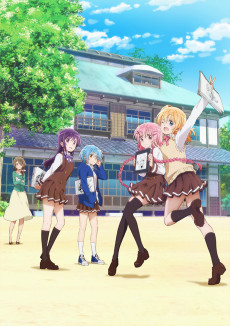 ANIME ComedyComic Girls
ANIME ComedyComic Girls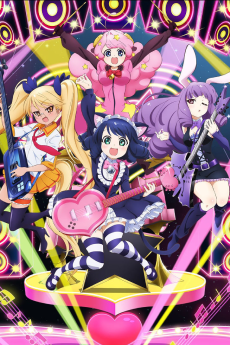 ANIME ComedySHOW BY ROCK!!
ANIME ComedySHOW BY ROCK!! ANIME DramaHibike! Euphonium
ANIME DramaHibike! Euphonium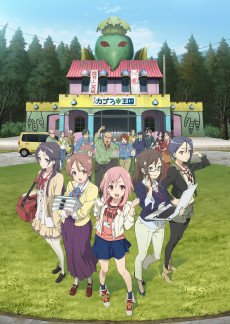 ANIME ComedySakura Quest
ANIME ComedySakura Quest ANIME ComedyYuru Camp△
ANIME ComedyYuru Camp△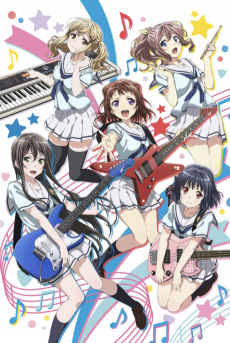 ANIME ComedyBanG Dream!
ANIME ComedyBanG Dream!
SCORE
- (4.35/5)
TRAILER
MORE INFO
Ended inDecember 25, 2022
Main Studio CloverWorks
Trending Level 8
Favorited by 21,908 Users
Hashtag #ぼっち・ざ・ろっく



